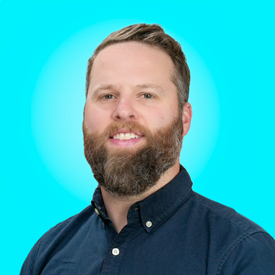Taking Wireless Charging Tech to New Heights
From a Farley class project to a venture-backed growth company, Jacob Babcock (JD ’09) has built NuCurrent into a leader in wireless charging innovation.
 As a law student at Northwestern Pritzker School of Law, Jacob Babcock (JD ’09) found an unexpected outlet for his entrepreneurial drive through the Farley Center for Entrepreneurship and Innovation. Little did he know that the class project he worked on at Farley would one day evolve into NuCurrent, his rapidly growing wireless charging technology company.
As a law student at Northwestern Pritzker School of Law, Jacob Babcock (JD ’09) found an unexpected outlet for his entrepreneurial drive through the Farley Center for Entrepreneurship and Innovation. Little did he know that the class project he worked on at Farley would one day evolve into NuCurrent, his rapidly growing wireless charging technology company.
Now, with big product launches on the horizon, Babcock aims to drive the wireless charging industry forward and inspire current Farley students to move faster, fail quicker, and relentlessly pursue their passions. He shared his insights in a Q&A.
What was it like taking entrepreneurship classes at the Farley Center?
I took Farley classes because they sounded fun and creative. As a law student, I appreciated that the classes were practical rather than theoretical, and I got to meet people from different schools like Feinberg School of Medicine and Kellogg School of Management. I also liked all the guest speakers and the fact that there was an advisory board of industry executives who could share their business experiences with us.
What skills did you learn during Farley classes?
One big one was design thinking. Farley gave me and my classmates major exposure to the process of design thinking. When you’re good at defining a problem, you open the door to innovative solutions. So many people get it the wrong way: they think they have an idea and apply it back to a problem, when it should be the other way around.
Another skill was learning how to work in interdisciplinary teams. It’s important to know how to work in teams with diverse capabilities and viewpoints. In my Farley team, we had two MBAs, two master’s students in engineering, one medical doctor, and one other lawyer. It was engrained early on that different skillsets bring different values to the team.
Tell us about your startup, NuCurrent.
NuCurrent is a venture-backed growth company that is developing wireless charging technology for a diversity of applications from consumer to auto, industrial, and medical. Our aspiration is to transform the way people experience devices.
How did NuCurrent begin?
NuCurrent started as a Farley class project. At the time we were called NeuRDS, and we were focused on powering implanted neurostimulators to wirelessly treat chronic pain. The inspiration for the idea started there, and, like a lot of businesses, we’ve morphed over the years and fanned out into different areas. We have some big product launches coming up this year, and while we’re not alone in the ecosystem, we want to drive the industry forward.
Given the amount of risk you take on as an entrepreneur, what keeps you going?
I’m not the kind of person who gives up. It’s the Michael Jordan mentality: I hate losing more than I like winning. I can’t look myself in the mirror if I’m losing, and I will do anything I can to turn it around if I am. It’s also about the opportunity to write your own story. You can be the boss on day one when you start a company, and there’s something cool about having that fast track to doing the top job in a company.
One of NuCurrent’s clients is WHOOP, a wearable tech company that makes fitness tracker bands. When the Olympics launched this summer, multiple Olympic athletes were wearing WHOOPs. NuCurrent does the wireless charging for those products, so it was pretty cool to see Olympians and famous athletes like Patrick Mahomes and Virat Kohli wearing them. It’s those successes that keep propelling you forward.
What advice would you give current Farley students?
Move faster than you think you can. A lot of times I talk about playing offense vs. defense. There’s no reason to play defense when you’re a student and getting started. Get out of the building to talk to customers earlier than you think. Find product-market fit early on.
There aren’t many people who pursue entrepreneurship, so you’re already kind of unique. Within that unique group, the difference between those who are successful and those who aren’t is the amount of hustle, grit, determination, and speed. Speed to get feedback, speed to fail, speed to grow. Get in as many iterations as you can.
